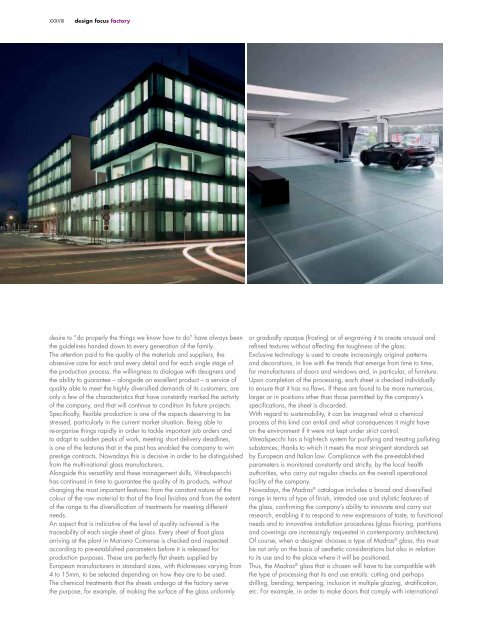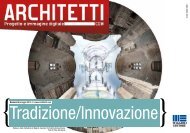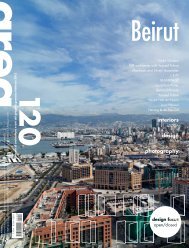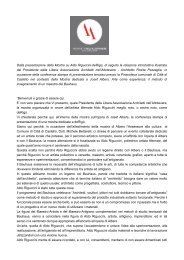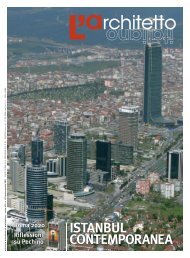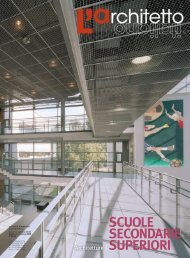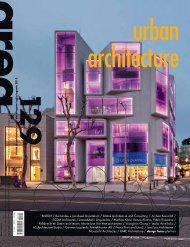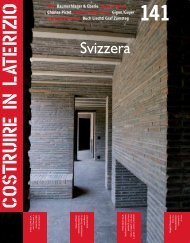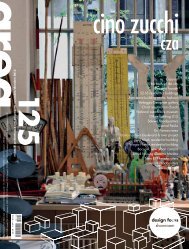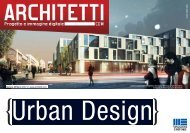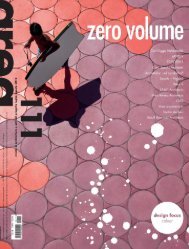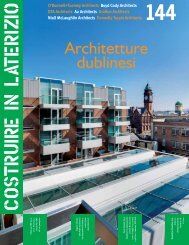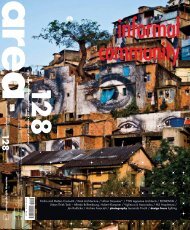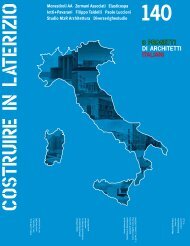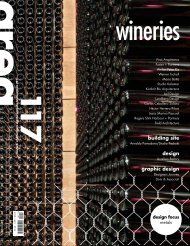Download AREA 127 - Architetti nell'Altotevere Libera Associazione
Download AREA 127 - Architetti nell'Altotevere Libera Associazione
Download AREA 127 - Architetti nell'Altotevere Libera Associazione
- No tags were found...
Create successful ePaper yourself
Turn your PDF publications into a flip-book with our unique Google optimized e-Paper software.
XXXVIIIdesign focus factorydesire to “do properly the things we know how to do” have always beenthe guidelines handed down to every generation of the family.The attention paid to the quality of the materials and suppliers, theobsessive care for each and every detail and for each single stage ofthe production process, the willingness to dialogue with designers andthe ability to guarantee – alongside an excellent product – a service ofquality able to meet the highly diversified demands of its customers, areonly a few of the characteristics that have constantly marked the activityof the company, and that will continue to condition its future projects.Specifically, flexible production is one of the aspects deserving to bestressed, particularly in the current market situation. Being able tore-organise things rapidly in order to tackle important job orders andto adapt to sudden peaks of work, meeting short delivery deadlines,is one of the features that in the past has enabled the company to winprestige contracts. Nowadays this is decisive in order to be distinguishedfrom the multi-national glass manufacturers.Alongside this versatility and these management skills, Vitrealspecchihas continued in time to guarantee the quality of its products, withoutchanging the most important features: from the constant nature of thecolour of the raw material to that of the final finishes and from the extentof the range to the diversification of treatments for meeting differentneeds.An aspect that is indicative of the level of quality achieved is thetraceability of each single sheet of glass. Every sheet of float glassarriving at the plant in Mariano Comense is checked and inspectedaccording to pre-established parameters before it is released forproduction purposes. These are perfectly flat sheets supplied byEuropean manufacturers in standard sizes, with thicknesses varying from4 to 15mm, to be selected depending on how they are to be used.The chemical treatments that the sheets undergo at the factory servethe purpose, for example, of making the surface of the glass uniformlyor gradually opaque (frosting) or of engraving it to create unusual andrefined textures without affecting the toughness of the glass.Exclusive technology is used to create increasingly original patternsand decorations, in line with the trends that emerge from time to time,for manufacturers of doors and windows and, in particular, of furniture.Upon completion of the processing, each sheet is checked individuallyto ensure that it has no flaws. If these are found to be more numerous,larger or in positions other than those permitted by the company’sspecifications, the sheet is discarded.With regard to sustainability, it can be imagined what a chemicalprocess of this kind can entail and what consequences it might haveon the environment if it were not kept under strict control.Vitrealspecchi has a high-tech system for purifying and treating pollutingsubstances, thanks to which it meets the most stringent standards setby European and Italian law. Compliance with the pre-establishedparameters is monitored constantly and strictly, by the local healthauthorities, who carry out regular checks on the overall operationalfacility of the company.Nowadays, the Madras ® catalogue includes a broad and diversifiedrange in terms of type of finish, intended use and stylistic features ofthe glass, confirming the company’s ability to innovate and carry outresearch, enabling it to respond to new expressions of taste, to functionalneeds and to innovative installation procedures (glass flooring, partitionsand coverings are increasingly requested in contemporary architecture).Of course, when a designer chooses a type of Madras ® glass, this mustbe not only on the basis of aesthetic considerations but also in relationto its use and to the place where it will be positioned.Thus, the Madras ® glass that is chosen will have to be compatible withthe type of processing that its end use entails: cutting and perhapsdrilling, bending, tempering, inclusion in multiple glazing, stratification,etc. For example, in order to make doors that comply with international


